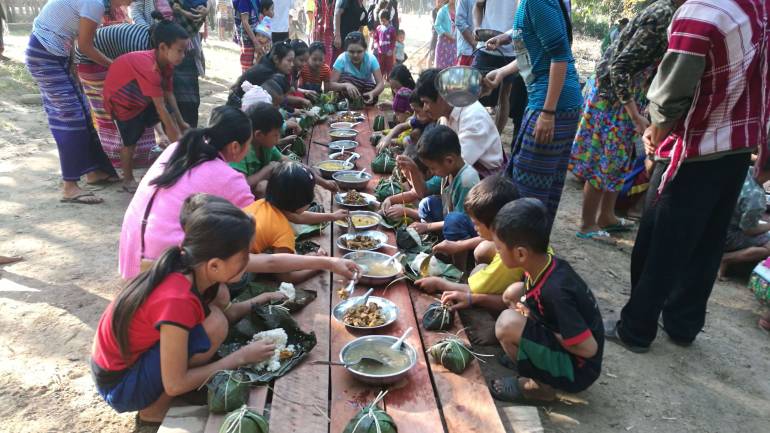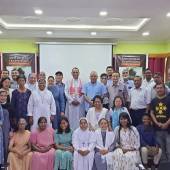Call for Social Justice in the Digital Economy

International Day of Social Justice is on February 20.
According to the National Association of Social Workers, there are nine biggest social justice issues, including voting rights, climate justice, health care, refugee crisis, racial injustice, income gap, gun violence, hunger and food security, and equality.
Pope Francis is well known for his bold advocacy for social justice in such areas as solidarity with refugees, protections for worker rights, peacemaking, promoting economic justice, and environmental activism.
The United Nations declared February 20 as the World Day of Social Justice on November 26, 2007. The International Labor Organization (ILO) unanimously adopted the declaration on Social Justice for fair globalization on June 10, 2008.
The landmark declaration was a powerful reconfirmation of ILO values. The outcome of tripartite consultations started in the wake of the Report of the World Commission on the Social Dimension of Globalization.
Together, the representatives of governments, employers’ and workers’ organizations from 182 member States committed to enhancing the ILO’s capacity to advance these goals through the Decent Work Agenda.
The declaration emerged at a crucial political moment, reflecting the broad consensus on the need for a strong social dimension to globalization in achieving improved and fair outcomes for all.
The Concept, Consequences, and Figures of Social Justice:
Social justice is a normative concept centered on fairness and the principles of equality, equity, rights and participation.
Social justice is justice in terms of distributing wealth, opportunities, and privileges within a society.
In Western and older Asian cultures, the concept of social justice has often referred to the process of ensuring that individuals fulfill their societal roles and receive what was their due from society.
The UN recognized that social development and social justice are indispensable for achieving and maintaining peace and security within and among nations.
Social development and social justice cannot be attained in the absence of peace and security or respect for all human rights and fundamental freedoms.
The UN acknowledged that globalization and interdependence were opening new opportunities through trade, investment, capital flows and advances in technology.
It included information technology for the growth of the world economy and the development and improvement of living standards worldwide.
While there remained serious challenges simultaneously, it included severe financial crises, insecurity, poverty, exclusion and inequality within and among societies, and considerable obstacles to further integration and full participation in the global economy for developing countries and some countries with economies in transition.
A Call to Action for Social Justice
Every nation globally has a responsibility to promote social development and social justice at the national level, which is indispensable.
As the fundamental values of social life, the Catholic Social Teaching state in no. 201 that “Justice is a value that accompanies the exercise of the corresponding cardinal moral virtue.”
Martin Luther King, Jr. also once said, “Injustice anywhere is a threat to justice everywhere.”
Myanmar Cardinal Charles Bo, the President of Federation of Asian Bishop’s Conferences (FABC), quoting Pope Francis’ words, said, “True mercy, the mercy God gives to us and teaches us, demands justice; it demands that the poor find the way to be poor no longer.”
This year's commemoration supports efforts by the international community to look for solutions to achieve sustainable development, poverty eradication, the promotion of full employment and decent work, universal social protection, gender equality and access to social well-being and justice for all.
Subsequently, it fosters dialogue with member States and relevant UN institutions and other stakeholders on actions needed to overcome the digital divide, provide decent work opportunities, and protect labor and human rights in the modern era of digital technologies.
Pope Francis and Social Justice
In October 2021, Pope Francis said denunciation is not enough when it comes to issues of injustice and invited to put into practice the Church's social doctrine.
“Our response to injustice and exploitation must be more than mere condemnation. First and foremost, it must be the active promotion of the good: denouncing evil and promoting the good." Pope Francis noted.
Pope Francis encouraged Christians to “sow many small seeds that can bear fruit in an economy that is equitable and beneficial, humane and people-centered.”
What are you doing to promote social justice?
It may be a small or big effort; tell us in the comments below.
Radio Veritas Asia (RVA), a media platform of the Catholic Church, aims to share Christ. RVA started in 1969 as a continental Catholic radio station to serve Asian countries in their respective local language, thus earning the tag “the Voice of Asian Christianity.” Responding to the emerging context, RVA embraced media platforms to connect with the global Asian audience via its 21 language websites and various social media platforms.














